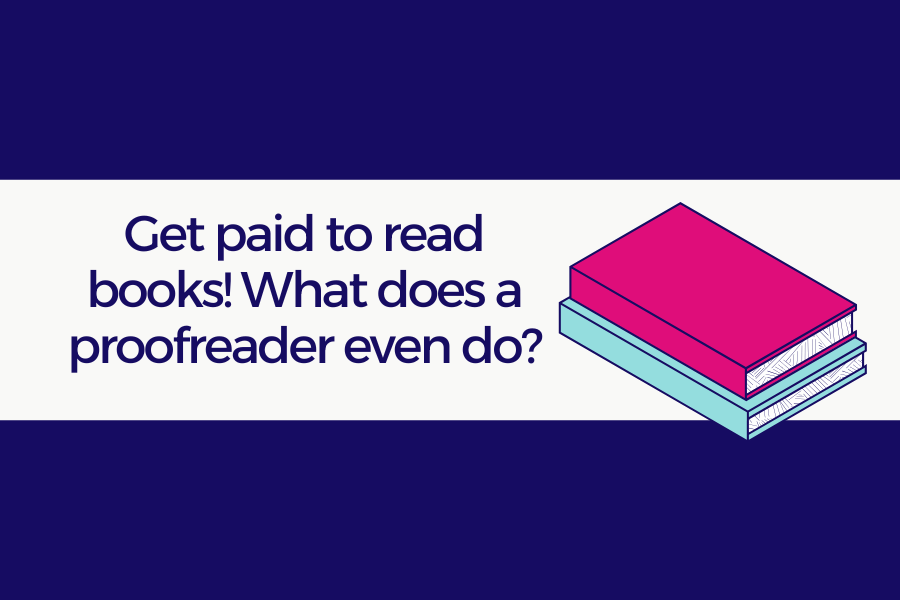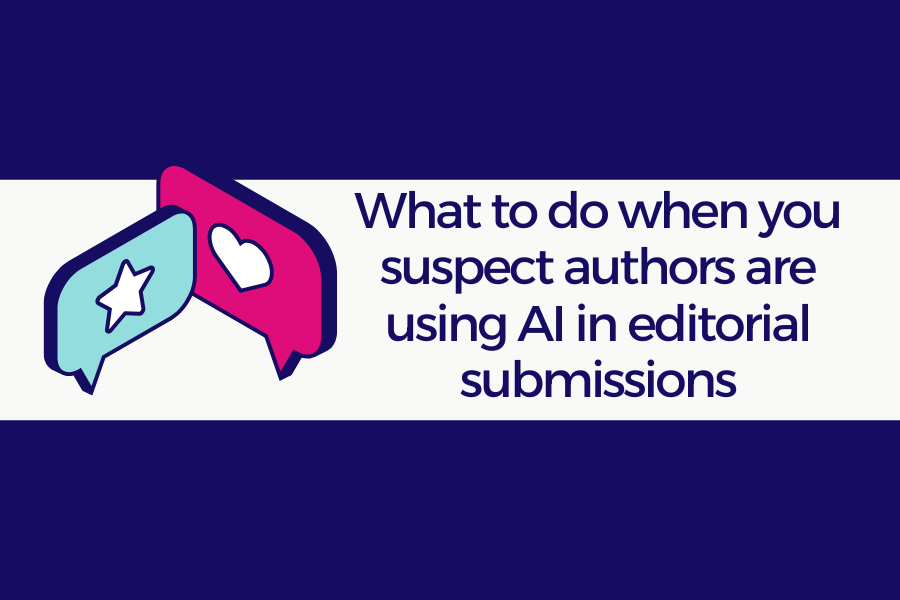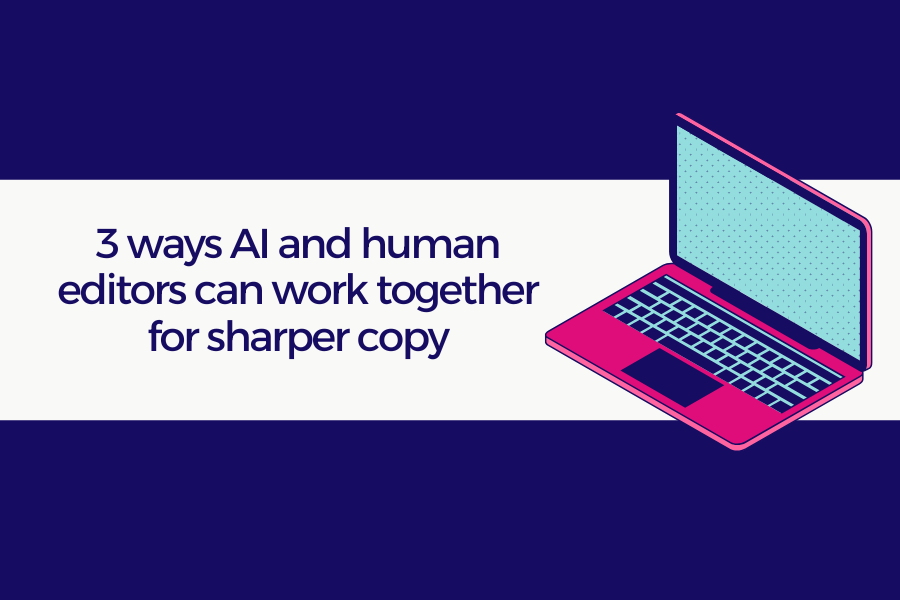Taking you though an example proofread.

It’s a common misconception that proofreaders have an easy job, sitting in the garden with a pencil in one hand and a book in the other. You may have seen adverts for training courses that read:
'Get paid to read books at home! Earn £50 an hour.’
I must admit, way back when I first considered a career as a proofreader, these ads were what inspired me.
I worked in a busy publishing team, and editing and proofreading were part of my everyday life. But I knew all too well that it wasn't 'just reading' – like reading for pleasure. Proofreading involves so many processes, skills and decisions.
Reflecting on my 20-plus years' experience, you might find the below scenario helpful in understanding more about what's involved when you employ a proofreader and why it sometimes takes longer than you think.
Identifying the need for an editor
Say you have a report that needs proofreading. It’s been written in-house in a Word document. It's around 6,000 words long. You’ve run spellchecker over it, but have spotted some inaccuracies and inconsistencies. The formatting is also inconsistent in places. You don't want to run it through ChatGPT as it's sensitive material and you aren't confident it will do everything you need. It took you around an hour to scan through it, so you estimate two hours for a proofreader to weed out the typos and tidy it up.
These are perfectly reasonable assumptions.
Can you take a look at this document?
You email the file to me and ask for a quote and idea of turnaround.
My first queries to you might be:
- Is there a house style you need me to apply? Many companies have their own preferences on use of capitals for example.
- Do you need this amending in UK or US English? There are some subtle differences in style.
- Is there anything specific you need me to consider or look at? Such as flagging up terms you don’t want used.
- How would you like it returned – as a clean proof and a markup, or just the tracked version?
- Looking at the file, I notice there are sections that need copy-editing. So, I decide to offer you a quote for a copy-edit/proofread and for a straight proofread. To support my suggestion, I complete a page sample to demonstrate the kind of work that is needed and send it to you with my initial queries.
Having seen the sample, and how much the document could be improved even further, you decide to book the copy-edit/proofread.
Let's get to work
- My first task is it read your house style and familiarise myself with the preferences in punctuation and any specific terminology.
- I run basic layout and formatting checks over the file.
- I address any minor issues (double spaces, missing indents).
- I run spellcheck and PerfectIT – using these tools to identify any obvious issues.
- I scan over the copy to get an understanding of the content.
- I then begin editing the file. As I read, I get a deeper understanding of the language, tone and information that is being presented. This informs my edit and I focus on clarity, consistency and conciseness.
- I start a basic proofreading log, noting any new style rules and issues.
- I correct any major formatting issues.
This takes four hours to complete.
I then take a break before working on the next stage.
- I save a copy of the file as a clean version and print it out.
- With your house style handy, I read through the printed version, marking up errors and style changes in red pen.
- I add to the proofreading log, noting any additional style rules applied and the reasons for that, along with my queries. I’m looking for typos, punctuation, cross-referencing, headers and captions…
- I then open the electronic version of my edited file and apply the changes – so that edits and proofreading amends show clearly in Track Changes.
- I save the file as a clean copy again and reprint it.
This takes three hours to complete.
I then take a break before working on the final stage.
- I read the file again with fresh eyes, identifying any final amends that need to be made.
- I recheck the house style and your brief to make sure I’ve not missed anything.
- I scan through my mark-ups and comments to make sure everything is clear and easily understood.
- I run spellcheck and PerfectIT once more to pick up anything I might have missed or that has crept in during the edit.
- I return the file to you with the proofreading log, summarising the main style issues, any queries and particular edits I’ve made.
This takes two hours to complete.
I stop the clock.
I’ve spent eight hours in total editing and proofreading your report.
You can see that, even if the report only needed proofreading, it could still take as long as five hours to proofread it thoroughly.
No two jobs are equal.
Sometimes, I’ve spent eight hours on a 6,000-word document, other times it’s all done in two or three. This is why it's not helpful to publish my hourly rates. I assess the work, advise you on what I think is best and we work together to get the result that suits you.
When I started out all those years ago, thinking I’d get paid for doing what I love most, I certainly got that – but if I were to advertise a proofreading course today, I would say something more like:
'Get paid for making other people’s writing better. Learn what it takes to become a skilled proofreader.'
A much more realistic message, don't you agree?
I'm signing off now, to read a book just for the fun of it!

The Edit Desk





